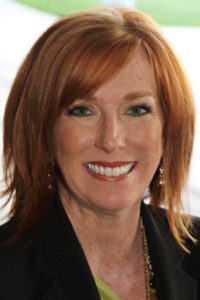By: Lauri Leadley, CCSH, RPSGT- Clinical Sleep Educator|Sleep Coach

Lauri Leadley, Clinical Sleep Educator, President of Valley Sleep Center
(Phoenix, AZ) February 6, 2019 – If you dread going to bed at night because you know you’ll spend more time tossing and turning than actually sleeping, you are not alone.
According to the National Sleep Foundation, nearly 40 million American men and women suffer from sleep problems. Insomnia, or the inability to fall asleep, is the most common sleep problem affecting 63 percent of women and 54 percent of men.
Many people turn to common sleep aids to try to get to sleep, but according to Lauri Leadley, sleep expert, and President of Valley Sleep Center, “The common sleep aids that most of us turn to can be actually be doing us more harm than good!”
The top three sleep aids that she warns about include:
- Over the counter sleep aids that contain sedating antihistamines. These agents have limited effectiveness and often induce next day sleepiness after nighttime use, potentially leading to car accidents and poor school and work performance. Taken in high doses, these drugs can be fatal.
- Older prescription sleep aids. If you have an old prescription sleep aid in your medicine cabinet you should be wary. Many of them are potentially addictive and toxic if overdosed. In addition they can lose effectiveness with regular use. Older prescription sleep aids can also make you feel groggy during the day and can contribute to reduced alertness which results in automotive and work-related accidents.
- Newer prescription drugs. Newer prescription sleep aids are safer, more effective, and less addictive. But there are still warnings. These drugs should not be taken during waking activities. These drugs can induce cognitive confusion and memory impairment.
So what is a person to do to get some sleep? According to Leadley, “There are many safer ways to get to sleep other than medication.”
She offers her top 5 safe sleep aids.
- Chamomile – A traditional herbal remedy that has been used since ancient times to fight insomnia and a wide range of other health complaints. Chamomile is sold in the form of tea, extract, and topical ointment and is widely available in health food stores and supermarkets.
- Melatonin is a hormone that is produced by the pineal gland in the brain. Melatonin is believed to play a central role in regulating sleep and circadian rhythms. Synthetic melatonin is a popular dietary supplement that is sold as a sleeping aid and antioxidant.
- Yoga for sleep: Yoga has also been used since ancient times to treat a variety of health complaints including insomnia. It’s the combination of deep breathing and gentle movement which activates your parasympathetic nervous system and helps you relax.
- Sleep apps– You can download sleep apps to your phone such as Sleep Genius. According to their website, Sleep Genius was developed via research meant to help NASA astronauts fall asleep. Sleep Genius app was designed to use sounds that help guide your brain through a complete sleep cycle so that you can fall asleep faster, sleep better, and wake up at your body’s optimal time.
- Deep breathing exercises. According to Dr. Michael Breus,deep breathing kicks off a series of physiological changes that aid relaxation, including reducing muscle tension, slowing breathing rate and heart rate, lowering blood pressure and metabolism.
If you are having trouble falling asleep or staying asleep, Leadley recommends that you talk to your doctor. Chronic sleep problems can be signs of more serious medical conditions.
About Valley Sleep Center:
At Valley Sleep Center, we specialize in sleep! Our physicians are Board-Certified in Sleep Medicine and provide consultations, diagnosis, and treatment of sleep disorders.
Valley Sleep Center is accredited by the American Academy of Sleep Medicine and has sleep clinics located in Mesa, Chandler, Glendale, Scottsdale, and Phoenix. Valley Sleep Center also provides CPAP equipment and supplies through its sister company Valley Sleep Therapy. For more information, go to valleysleepcenter.com orvalleysleeptherapy.com.

